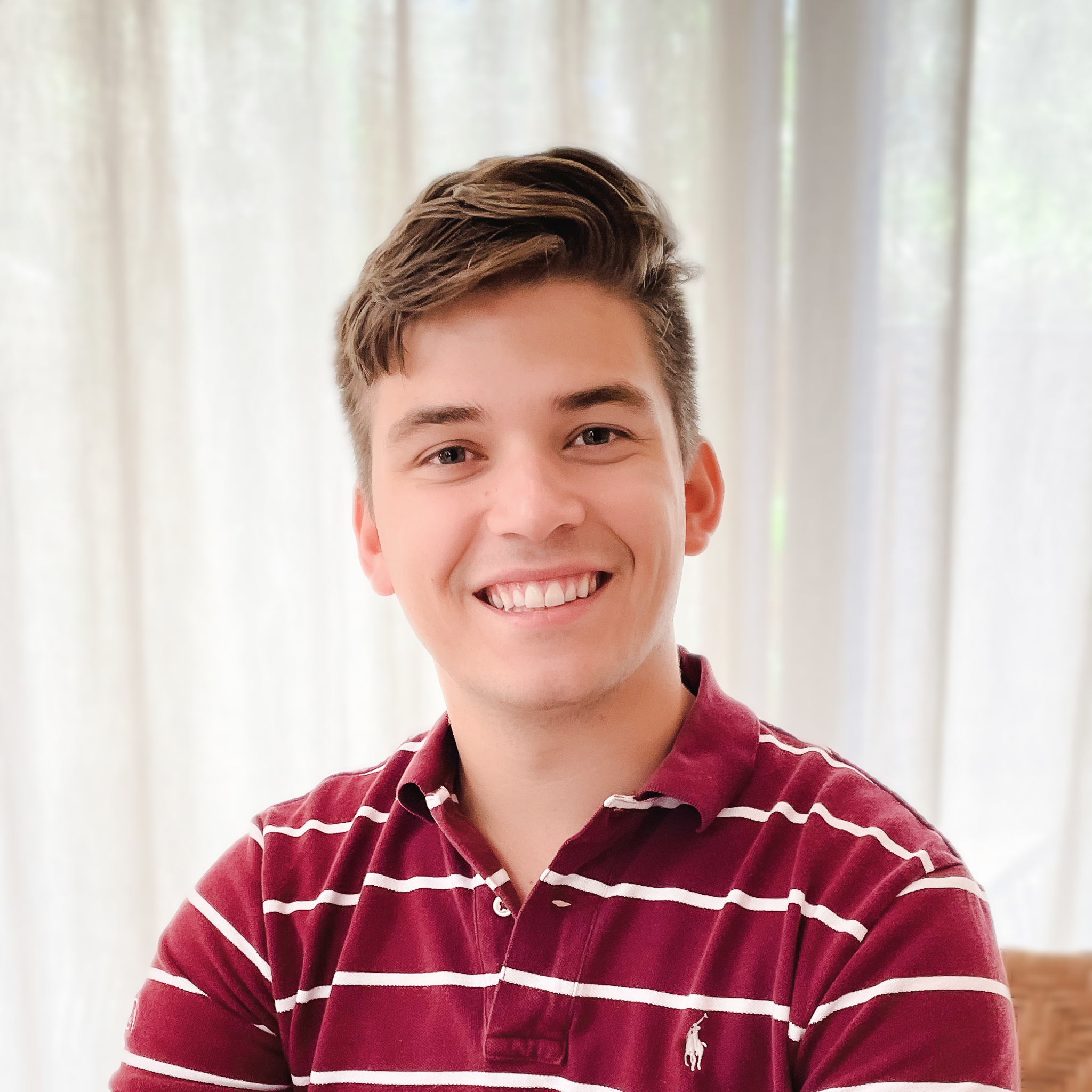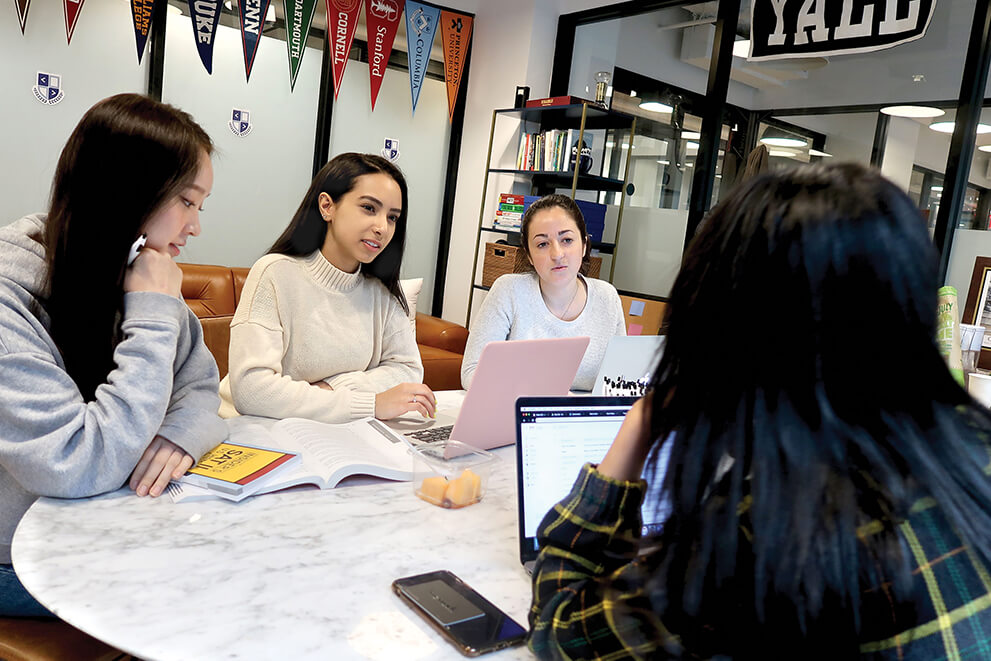The college admissions landscape is more complex and competitive than ever before, and many students are seeking the expert guidance of a private college consultant to give their application a competitive edge. While the right college consultant will help you level up your application and stand out to your dream school, many students have hesitations about the process. Some worry that working with a private college consultant will be an intimidating and labor-intensive process—alternatively, others worry that they will lose a sense of agency in the application process as the consultant dictates their application strategy.
Students often come to Command Education with questions such as:
- What will our sessions look like?
- Will I connect with my Senior Mentor?
- How much work will I be expected to do?
Command Education’s approach to college admissions consulting is rooted in helping students discover their core passions and convey their authentic selves to their dream schools—in other words, the experience is all about you, your interests and your future. In addition, our Senior Mentors are all recent graduates of Ivy League and other top universities, so, having gone through the process not too long ago, they are able to relate to the ups and downs of the high school experience and the stress you may be feeling as you prepare for the college admissions process. The relationship between Senior Mentors and students is the foundation for success in the college admissions process, and students overwhelmingly report that their work with their Senior Mentor was a transformative part of their high school career.
In order to better understand what you can expect from working with a Senior Mentor, we sat down with Senior Mentor Henry Mojica to answer your most pressing questions!

How do you run a session?
Henry: “During a typical session, I start by checking in on high priority action items and let the student tell me if they have any big updates (or generally exciting things happening in their lives!). I then check in on the status of remaining work and lay out the plan for the session. I give them the chance to let me know if there’s anything we have not included in the plan that they want to work on—I always welcome students’ feedback and give them the opportunity to share their input on how they want to use our time together. We then get to work, typically starting with action items that can be finished quickly and tackling ones that have the highest priority—whether that’s writing emails, laying out passion project plans, or editing essays.
If one of my students is preparing for the SAT, we will pause working on their passion project and focus more on managing stress, setting goals, and minimizing test-taking anxiety. On the other hand, if a student doesn’t have any big projects or tests coming up, we may spend more time planning and executing their passion project.”

How much say do I have in what we work on?
Henry: “My students always have a big say in what we work on! Outside of schoolwork or various unavoidable obligations, like standardized testing, our goal is to find endeavors that truly excite you—if you’re not genuinely interested in it, it’s a sign that we need to pivot. I provide a comprehensive, personalized plan for each student to kickstart our work together. At the same time, if they want to prioritize other items—such as an application for a competitive summer program or researching new volunteer opportunities—or take their tasks and goals in a different direction based on what they’ve discovered about their interests, we always find ways to make a new plans that align with the students’ needs and desires. I often shift entire plans for sessions based on students’ feedback if their other action items are not as high priority.”

How does my Senior Mentor help me discover my passions?
Henry: “You and your mentor will begin by talking about your classes, hobbies, extracurricular activities, and interests to get a sense for what you like or dislike about each of them. Your mentor will then encourage you to push yourself and try new clubs, programs, or volunteering opportunities based on your existing interests—even if they are vague or still undefined. From there, you will have the chance to share with your mentor the specific aspects of each of these opportunities that you enjoy most. Based on this, your mentor will help you start narrowing down your passion and ultimately build a passion project or find another way to dive deeper into that subject of interest—whether through research, an internship, a merit-based summer program, or a class at a local college.
One of my students began working with me with a vague interest in biology and medicine. Throughout our time together, I encouraged him to take advanced classes in biology and anatomy and physiology, through which he developed a desire to pursue a BS/MD program in college. As I coached him to explore independent opportunities to further engage with this passion, he decided to become CPR certified. Through the process of earning his certification, he discovered an interest in increasing education in emergency medicine. I helped him launch an organization that traveled to various schools, churches, and community centers in the area to provide trainings in CPR and other lifesaving techniques.”

Will the work be my own?
Henry: “Yes—the work absolutely must be your own. Command Education was founded to help motivated students refine their interests and pursue their passions. Our team members are true mentors in that they guide students to discover their authentic purpose, rather than pass off their work as yours. We will help you find and apply for opportunities that interest you, come up with ideas and a plan for your passion project, create a balanced college list, and brainstorm and vastly improve your application essays, but ultimately the work you produce is truly and entirely your own. This means that when you get that coveted acceptance letter, you can feel the joy and accomplishment of knowing that it was your hard work that earned you a spot at your dream school. ”

How often do I meet my mentor?
Henry: “It varies based on the time of year and the stage of the application process that the student is in, but students typically meet with their mentors once per week. Sometimes students have vacations or really busy weeks of tests and assignments, so they’ll take a week off here or there. Sometimes they have work that needs to be finished quickly or that can use the additional support of their mentor, so they’ll meet two or even three times a week in rare cases. However, once a week is most common. All of our mentors meet with students via Zoom, so we are accessible to students from anywhere in the world and at flexible times to ensure that students are able to schedule meetings that work within their time zones and schedules.”

Do you give your students lots of work?
Henry: “You drive the ship, so, it’s all dependent on your motivation, goals, interests, and involvements. That being said, workloads ebb and flow relative to your school schedule, assignments and other commitments. We won’t focus on your passion project during finals season, for example. Students with high ambitions tend to take on more work in order to ensure that they complete everything they want to accomplish. My main priority is to keep the workload manageable.
Assignments vary widely between students. A writing assignment might require students to free-write responses to a series of questions that will guide the narrative for their scholarship essay. Meanwhile, a passion project assignment for a student who wants to create coding classes at a local community center might be gathering a few past projects and online examples of coding work to create a basic curriculum outline that we will refine during their next meeting. Our work is completely tailored to each student, and assignments are all different—all of the work you complete will help you work toward your unique goals and aspirations.”

Will I connect with my Senior Mentor?
Henry: “Our mentors want to connect with you! We have recently been through the college application process ourselves, and we likely have quite a bit in common with you. Many of us have helped our own little siblings or family friends through this process, and we’re excited not just to guide you, but to get to know you personally. Getting to know our students is the most enjoyable and rewarding aspect of our work. The team is filled with social, fascinating people who will make you comfortable from the get-go!”
What Students Have Said:
“I didn’t think I was going to like my Senior Mentor, but from the very first session, she was interesting to talk to and helped me figure a lot out. Now, I can’t imagine going through the college admissions process without her help!”
“I was pretty mad when my parents signed me up for this service, but my Mentor was really flexible and encouraging. We ended up working on a cool project that I enjoyed building.”












